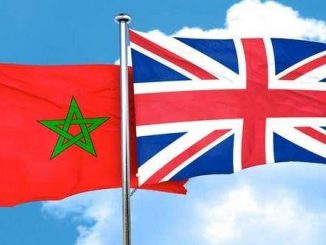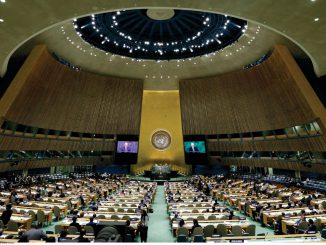
Nikolaj Harris, ambassador of the Kingdom of Denmark to Morocco, says that his country’s position on Moroccan Sahara is unambiguous, contrary to what some might believe.
The ambassador of the Kingdom of Denmark to Morocco, and also to Mauritania, understands the socio-political-economic situation of the country. All this is reflected in a long interview given to the daily newspaper Al Massae and published in its edition of Tuesday, March 3.
However, when you consider that Denmark is currently working, under an agreement with Morocco, on a major computerization project to modernize and refine Moroccan statistical data, it is easy to understand why Nikolaj Harris knows almost all the figures concerning Morocco. Unemployment rate of young people or graduates, disparities between rural and urban areas, number of marriages of underage girls, divorces, cases of violence against women… Nothing escapes this Nordic ambassador.
Nikolas Harris, who says he is working tirelessly on this statistical computerization project with Ahmed Lahlimi, High Commissioner for Planning, is convinced that the production of accurate statistical data in Morocco is the best way to provide decision-makers in all fields with a reliable scorecard for the country’s all-round development. A development for which Morocco is making praiseworthy efforts, according to the Danish diplomat, through projects already completed or in the process of being completed.
Asked about the Danish position on the issue of the territorial integrity of Morocco, Nikolaj Harris first made a point of specifying that, contrary to what is often reported in the Moroccan media, the position of his country on the Sahara is more than clear. Indeed, according to him, Denmark is, “like the majority of countries in the world, in favor of a political solution, acceptable to all parties, fair and lasting, under the framework of the UN”. He said he hoped to see a replacement for Horst Kokler soon to resume negotiations where Kokler had left off.
Nikolaj Harris addressed the barbaric act of Imlil in which, in December 2018, two Scandinavians, a Danish woman and a Norwegian woman, were savagely murdered by terrorists. He particularly noted the surge of unprecedented popular solidarity that was massively expressed, for several days, in front of the Danish embassy in Rabat, as well as the exemplary cooperation of the Moroccan security and political authorities with their Danish counterparts.
Lastly, the Danish ambassador said that he was very impressed by the efforts of the Special Commission on the Development Model. In this regard, he would like to offer some advice: that of giving, as in Denmark, as he said, “high priority to democratic freedoms, because they are intimately linked to progress and economic development”. But he acknowledges that the model of the Nordic countries, which have a very high “happiness index”, is the result of very specific local socio-historical conditions which even many European countries have not been able to copy, despite their greater economic resources.




Be the first to comment